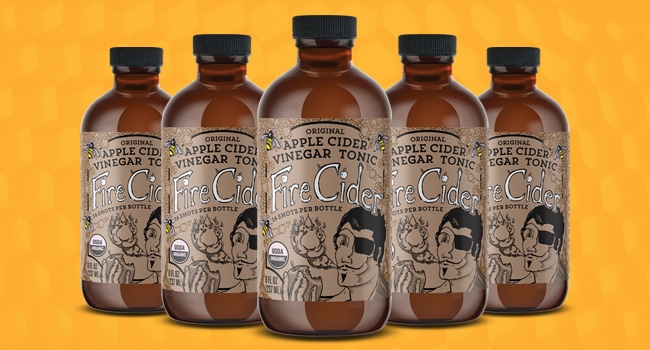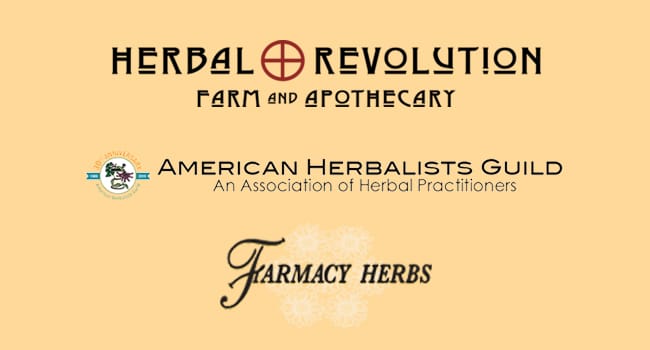Court Rules Against Shire City Herbals in ‘Fire Cider’ Trademark Case
A Massachusetts court has ruled “fire cider” is a generic term that cannot be trademarked, potentially ending a yearslong legal battle between herbal brand owners and tonic maker Shire City Herbals, which claims to have originated and own the term.
The case’s origins stem from a 2012 trademark filing by Shire City for the name “fire cider,” which it had been using as a brand name for its line of herbal tonics made with ginger, horseradish, onions and apple cider vinegar. The move led to a backlash among herbal tonic makers who claimed that “fire cider” is a generic term that was in use long before being adopted and trademarked by Shire City.
In 2014, herbal brand owners — including Farmacy Herbs owner Mary Blue and Herbal Revolution founder and CEO Katheryn Langlier — petitioned to cancel the trademark. The next year, Shire City fired back with a trademark infringement lawsuit against Blue, Langlier, and Wildflower School of Botanical Medicine director Nicole Telkes and sought a declaratory judgment to validate its ownership of the Fire Cider name.
For the defendants, the court ruling — which came down last month — is a precedent setting victory. The ruling concluded that “fire cider” is a generic term that had not acquired sufficient association with Shire City’s brand as to be protectable. Speaking with BevNET, Blue said the case could be used to protect other products in the herbal industry from similar attempts to trademark widely used terminology.
“We stood up for ourselves and a company might think twice now,” Blue said. “We will take it to the end and we will protect our terms. We’re not going to sit by and say ‘OK you can have our language.’ It’s more than just sales for us. It’s really about protecting our traditions.”
According to Langlier, Herbal Revolution had used the term “fire cider” prior to Shire City’s trademark filing, but changed the name of its product to Fire Tonic in 2014 after receiving a cease and desist letter. Langlier told BevNET that she hasn’t decided if she will rebrand the product back to its original name, as the company has since expanded its tonic line to include multiple products.
“I had to market my brand as Fire Tonic for all these years, so to all the stores that it’s currently in and to our customers it’s known as Fire Tonic,” Langlier said. “We’re sort of figuring [the brand name] out right now, but I can tell you that it’s going to be really great to have the choice to call it ‘fire cider’ again.”
However, the ruling is not yet definitive. Shire City founder Dana St. Pierre told BevNET that damages have not yet been awarded and that the company is still discussing its options but has not decided how it will go forward. An appeal, he said, is not off the table.
“It’s been a long road and it’s not one that we wanted to go down,” St. Pierre said in a phone call today. “We tried to settle this multiple times and we never wanted this to go this far.”
Calling the lawsuit a “terribly wasteful process,” St. Pierre said that although losing the trademark would be “difficult,” he will continue to move forward with the Fire Cider brand regardless.
“The only thing that would be different is that we won’t have the ‘R’ next to the name,” he said.
New Class Action Targets Brew Dr.’s Probiotic Count
A class action lawsuit filed last week is taking aim at Brew Dr. Kombucha’s probiotic count, alleging the Oregon-based brand’s products contain only a fraction of the advertised “billions” of colony forming units (CFUs) of bacteria.
Filed in the United States District Court for the District of Oregon, Portland Division, by Idaho resident Gunnar Amos, the suit claims that Brew Dr. products tested by an independent laboratory found just 120 CFUs of probiotics per milliliter — roughly 50,000 CFUs per bottle and roughly 20,000 times less than the stated “billions” of “live and active cultures” on Brew Dr.’s labels.
The complaint notes that Brew Dr. recently changed its labeling to remove all references to the amount of probiotics in its drinks.
Amos is represented by Portland, Oregon-based law firm Stoll Berne. Steve Larson, an attorney for the firm, told BevNET that the class action was initially filed in Illinois last year but was referred to Stoll Berne in order to file an additional suit in Brew Dr.’s home state.
“I would expect, being a consumer and knowing other consumers, that if you’re buying a product because of its probiotic nature and it turns out it doesn’t have as much probiotics as it says, you will feel that you purchased something you didn’t want, that you were hoping for something different,” Larson said.
In a statement sent to BevNET, Brew Dr. CEO Matt Thomas said the company does not claim specific quantities of probiotics on its bottles due to variations in the fermentation process.
“We go to a lot of effort to make our kombucha non-alcoholic while keeping it raw, live and active,” Thomas wrote. “Real, authentic kombucha fermentation creates a wide variety of bacteria and yeasts. We don’t claim a certain quantity of any particular organism because of the dynamic nature of kombucha fermentation. We continue to believe that making kombucha the traditional way is the right thing to do.”
Court Rules in Favor of 5-Hour Energy in Costco Case
A California court ruled in favor of 5-Hour Energy maker Living Essentials LLC today, deciding that the brand did not illegally price discriminate against Costco when it offered the retailer its energy shots products at a lower price point.
According to Law360, the suit was filed by U.S. Wholesale Outlet & Distribution Inc. in February 2018, alleging that Living Essentials violated the Robinson-Patman Act by giving Costco a 10-cent-per bottle discount on its products.
Several other wholesalers, including Trepco Imports & Distribution Ltd., Eashou Inc., Sanoor Inc., California Wholesale, L.A. International Corp. and YNY International Inc. joined the suit in June 2018. The group argued that their businesses had seen declining sales of 5-Hour Energy as a result of the Costco discount.
A jury ruled that Living Essentials’ discount did not constitute illegal price discrimination. During the two-week trial, Living Essentials attorney Powell Miller argued that the wholesalers “hadn’t proven their case and that there could be any number of reasons” they had lost business, according to Law360.


